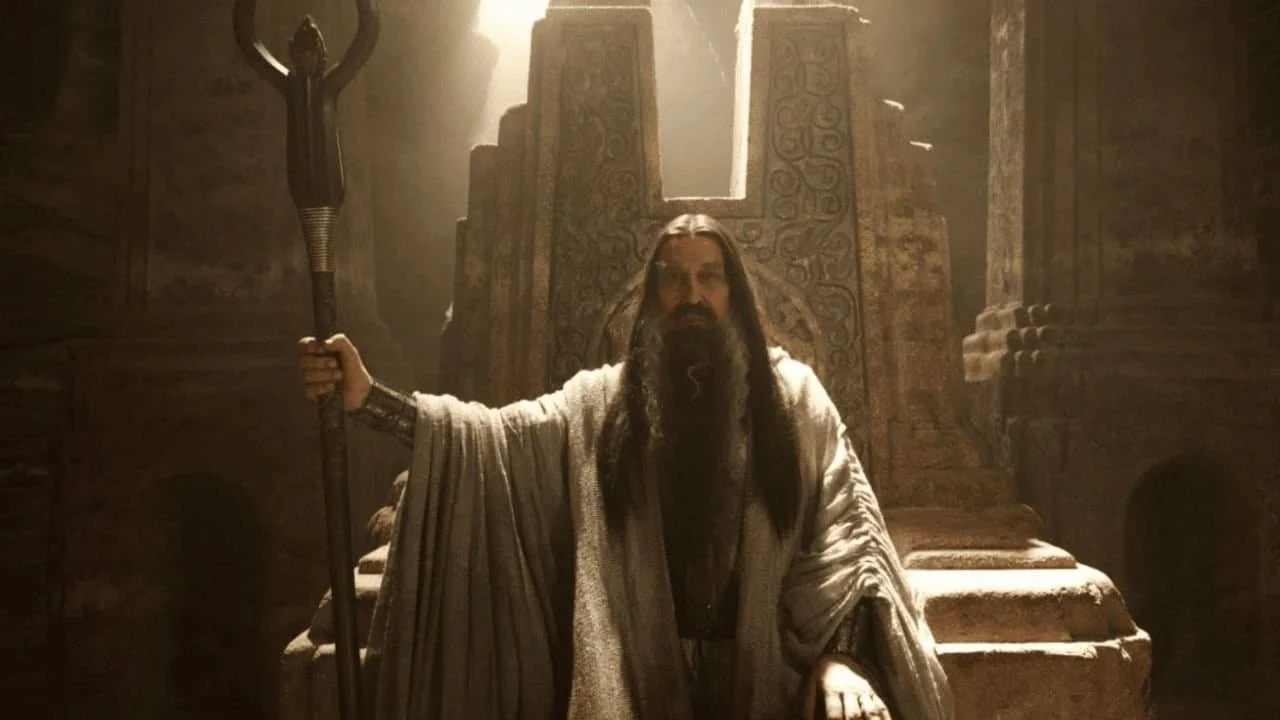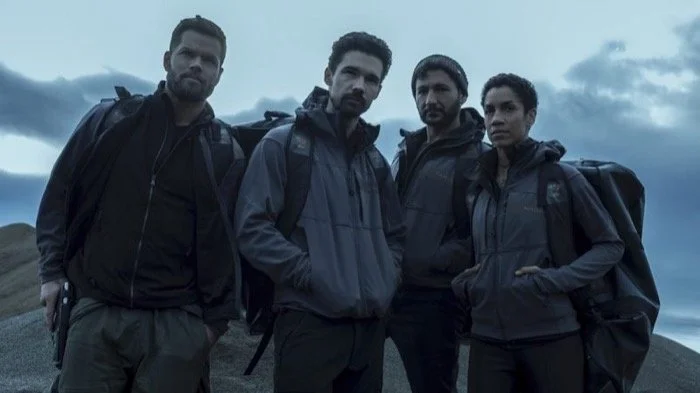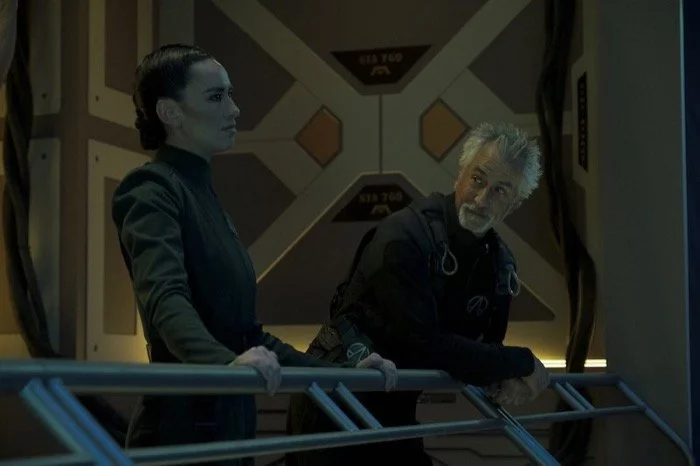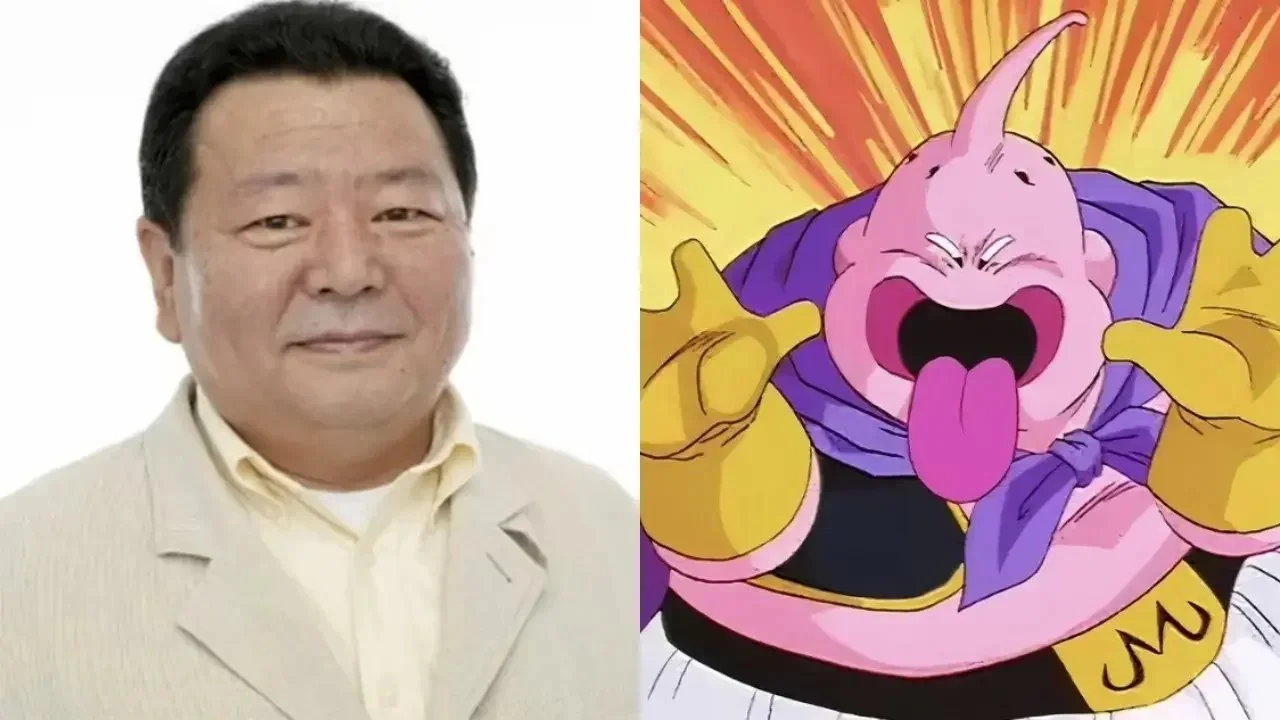'The Expanse': Season Four Review
Image Source: The Expanse Lives
Back when season three ended, there was some despair and heartache among Expanse fans when SyFy went and did their thing and canceled a banger of a show. There was a massive, concerted social media campaign launched by fans to #SaveTheExpanse. Even the showrunners and stars got involved. And it worked. It attracted the attention of Jeff Bezos, who reportedly said Amazon has to pick it up.
And so The Expanse was saved, and fans everywhere rejoiced.
The Amazon acquisition also coincided with a change in the pace of the show. Season three ended on a great cliffhanger. Before season four, each season was split between two of the source novels. That’s done. Season three ended at the end of book three. From that point on, each season would cover one book. It was definitely a decision that changed the trajectory of the series and also led to dismay again at the end of the series, as there were still three novels that were not adapted. But more on that in the season six review.
RELATED:
In season four, Mars and Earth having settled their animosity, have taken up the mantle of patrolling the Sol ring. and they’ve entered into a sort of quasi-détente with the OPA and using the Behemoth, they police the Ring Space. After the events of Ganymede in season two, Belter refugees fled to one of the new systems and made landfall on a planet they took to calling Ilus. Of course, despite their brief shining moment of clarity at the end of season three, the UN decides it gets to declare who can and cannot claim planets. They send their own group to the planet, and they were calling it New Terra. Tensions arise, people start to die, and Holden is sent at the request of Avasarala to investigate the Protomolecule structures they found on the planet, and also cool tensions. Nothing goes according to plan.
The Roci crew make landfall. It’s Naomi’s first time on a planet.
Image Source: TV Insider
With all of that going on, Drummer and Ashford are exploring the new peace with the Inners. They are tasked with policing the Ring Space and the Belt amid a string of attacks on refugees and people heading through the rings only to be held up by UN and Martian ships. And back on Mars, Bobbie gets involved with some shady people that, although she doesn’t know it, tie her to what Drummer and Ashford are dealing with. It’s a sinister, dark plot that leads to the shocking last two seasons.
Its different structure compared with the other two seasons also accompanies a different all-around feel. While it would be easy for some to rate this the lowest of the series based on that alone, I don’t think that’s fair. It is different, but I just think that’s because the bulk of the season takes place on land. It’s jarring, for sure, to replace the tight hallways of ships and stations with open sky, but the same stellar writing and character development keep the season strong. All that considered, it still comes to be one of the lowest-ranked of the series. I think that’s mostly due to the pacing. Season four is much slower-paced, and while that’s not, by default, a detractor, it comes off feeling in this instance as a sort of first season. If it was a first season, it wouldn’t be a problem, but coming in the middle of a series, it deflates some of the momentum.
There are some notable additions to the series, however. The introduction of Burn Gorman as the antagonist, Adolphus Murtry, on Ilus, and Keon Alexander as Marco Inaros, the source of Dummer and Ashford’s woes, are welcome additions to the cast. Burn Gorman gives a hell of a performance and delivers one of the best tongue-in-cheek lines I’ve ever heard. When Holden goes to free Amos from lockup, Murtry confronts him and questions why they think he’s the bad guy and drops the line, “Maybe I’ve just got that kind of face.” It’s perfect, given Gorman’s type-casting as a villain. He’s good at it, though, and does a fantastic job getting you to just absolutely hate him by the end of the season and everyone watching wishing they were Amos when he just pummels him.
Introducing Marco Inaros (Keon Alexander).
Image Source: EW
Keon Alexander’s introduction as Marco Inaros doesn’t get the screen time that he does in later seasons, but it’s still a sound performance. He’s a fantastic actor and when you know what he ends up doing, his delivery gives you chills, and that voice in the back of your head gets a little louder, edging you in the direction of sympathy for his cause. That’s the danger of Inaros, which will be fully realized by the end of the season and dominate the last two seasons. David Strathairn and Cara Gee’s Klaes Ashford and Camina Drummer, respectively, know this too, but when they are presented with a “would you kill Hitler” moment, whether they realize it or not, their decision doom the lives of millions. Keep that moment in mind when you get to the end of season six. It’s another pivotal moment, and when you first watch it, the writing does such a good job of keeping you in the dark until it’s too late.
That’s another one of the strongest aspects of this series. The writing and plot lines are clearly planned out throughout the whole series. It helps to have the authors of the novels themselves on hand to write the series, but the amount of times I’ve found myself in this series recalling something said in a prior season that was actually foreshadowing is incredible. For example, when you get to the end of the season, in the final shot, pay close attention. Then, think back to Avasarala on her roof in season one, talking to her grandson about what worries her. Fantastic world-building and storytelling. Chekhov may get mad that the gun wasn’t fired later in the chapter, but these writers are all about the slow burn and big reveal, and it pays off.
Drummer (Cara Gee) and Ashford (David Strathairn) deal with the consequences of their actions.
Image Source: IMDb
I think back to what I wrote in other reviews about the series about the contrasts in scale. After season three, the scale of the show expands by an order of magnitude. Yet the skill of the storytellers continues to come through in how they focus on the effects of small actions on such a massive scale as a galaxy. It’s real butterfly-flaps-its-wings kind of stuff. These small actions, from Anna’s compassion toward Clarissa in season three to Ashford’s prescience to record his conversation with Marco at the end has such widespread consequences. It’s truly beautiful to see it unfold.
The major holdback with the season is the pacing. It’s a slow burn, the kind which you might see in a first season, as said before. The events on the planet are presented as having major implications, but I can’t help but come away from it being indifferent. As I said above, there’s always this theme of individual actions having profound system-wide effects. I just didn’t get that from the planet arc. Maybe I’m wrong, but it was a distinct diversion from the rest of the series. Even Drummer and Ashford’s arc feels isolated. It’s not until the end that you realize how far-reaching their actions were, but you don’t get that from the planet arc. The threat of the Protomolecule at the heart of the first half of the series just feels hollow in the planet arc. It still works, but compared with the rest of the series, it’s markedly different, and I think ultimately detracts a little from this season.
That said, it’s still a good season. This is by no means a mediocre or bad season. The acting is on point, the story is strong, and in the end, it’s a success. But in a series full of successes, they won’t all be above par, and season four, among the rest, comes out on par.
Rating: 7.5/10
READ NEXT:
















